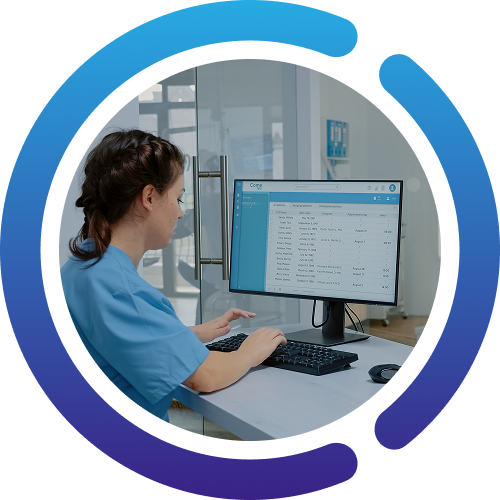The field of clinical research thrives on data analysis, and Clinical SAS programming equips you with the specialized skills to excel in this domain. SAS (Statistical Analysis System) is an industry-standard software program used to manage, analyze, and report on clinical trial data. By mastering Clinical SAS, you’ll be empowered to create programs that clean, manipulate, and generate insights from complex clinical datasets. These insights are crucial for effective decision-making in drug development, medical device evaluation, and overall healthcare advancements.

A career in Clinical SAS programming offers a multitude of advantages, including:
Clinical SAS expertise opens doors to various roles in the pharmaceutical, biotechnology, and healthcare industries. You could find yourself working as a Clinical SAS Programmer, Clinical Data Analyst, Biostatistician, or Data Manager in a CRO (Contract Research Organization) or pharmaceutical company.
The demand for skilled Clinical SAS programmers far outstrips supply, leading to competitive salaries and excellent job security.
You’ll play a pivotal role in the development of life-saving treatments and therapies by transforming clinical trial data into actionable knowledge.
Clinical SAS offers significant potential for career growth and advancement. Here’s a typical progression in the field:To embark on your journey as a Clinical SAS programmer, consider these steps:

You enjoy working with data, identifying patterns, and extracting valuable insights.
A solid understanding of these subjects will provide a firm grasp of the statistical concepts employed in Clinical SAS.
You’re curious about the drug development process and how data analysis contributes to medical advancements.
Accuracy is paramount in Clinical SAS programming. You’ll need a keen eye for detail and the ability to troubleshoot challenges that may arise during data analysis.

Are you ready to step into the exciting world of Clinical SAS programming and contribute to groundbreaking advancements in healthcare? Contact us to explore our comprehensive Clinical SAS training programs designed to equip you with the necessary skills and knowledge to excel in this rewarding field.
Ring at : +91 7066457703

A Clinical SAS programmer is a data specialist who utilizes SAS software to manage, analyze, and interpret data collected during clinical trials. They create programs to clean, transform, and generate statistical summaries of clinical data, ensuring regulatory compliance and facilitating effective communication of findings to researchers, healthcare professionals, and regulatory agencies.
This career path offers a compelling blend of factors: high demand and ample job opportunities, the potential to make a real difference in healthcare advancements, intellectual challenges, and the opportunity for continuous learning and professional growth.
Strong analytical and problem-solving skills, proficiency in SAS programming, a solid understanding of statistical concepts, excellent attention to detail, and effective communication skills are all essential for success in this field.
While not always mandatory, earning a Clinical SAS certification demonstrates your expertise and commitment to the field, potentially enhancing your job prospects.
While SAS programming has a learning curve, numerous resources and training programs are available to guide you. With dedication and a strong foundation in math and statistics, you can master this valuable skill.
Work hours can vary depending on the company and project deadlines. However, Clinical SAS programmers generally enjoy a standard workweek with some flexibility.